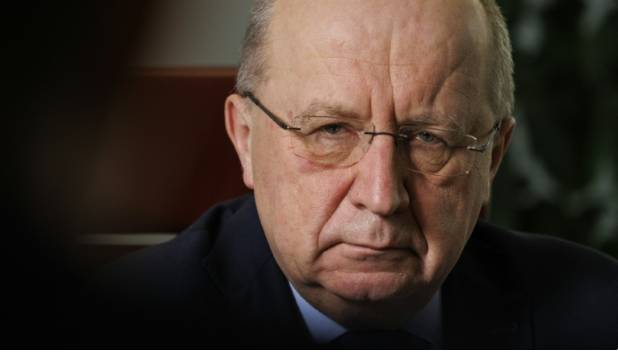New EU commissioner calls for major defence reform against Russian threat

Stay tuned with 24 News HD Android App

The European Union needs a "big bang" of spending and policy changes to ramp up its defences in the face of the threat posed by Russia, the bloc's new defence chief Andrius Kubilius told AFP.
The former Lithuanian prime minister began work as the EU's first-ever dedicated defence commissioner this month, tasked with turbocharging Europe's defence industry and the stuttering push to rearm.
Sitting in his new office overlooking Brussels, he pointed to estimates from European intelligence agencies that "Russia can be ready for military aggression against the EU or NATO member states before 2030".
"We need to move from what some people are calling incremental improvement of our defence capabilities to some kind of big bang approach," defence commissioner Kubilius said in an interview.
"The question is: is there enough political will to defend ourselves?"
Moscow's full-scale invasion of Ukraine in February 2022 was seen as a wake-up call for Europe and its underfunded defence industry after years of neglect following the end of the Cold War.
But despite countries ramping up military budgets since then and a raft of EU efforts to increase production, Europe's output of arms still lags far behind that of Russia.
Kubilius said that what Europe needs is a huge injection of cash quickly and an overhaul in the way countries spend their money in a fragmented sector where national interests have traditionally dominated.
He repeated a figure given by his boss, European Commission President Ursula von der Leyen, that Europe needs to invest an additional 500 billion euros ($530 billion) on defence over the next decade.
He said the EU should use NATO's long-term capability targets to guide how much money is required and what it needs to be spent on.
"We need to have long-term contracts with the industry, which should come from member states in the form of aggregated demand," Kubilius said.
"And we need to have finances from member (states) to finance the whole process."
Putin, not Trump
Kubilius -- along with the EU's new top diplomat Kaja Kallas -- has been charged by von der Leyen to come up with proposals on the "future of European defence" within their first 100 days in office.
There have been calls from EU countries including France and Estonia for the bloc to use joint borrowing to fund defence spending similar to the approach Europe took to fund its recovery from the Covid pandemic. But others such as Germany and the Netherlands have so far rebuffed moves in that direction.
Kubilius played down the prospect of issuing joint debt "because that is making everybody very nervous".
Instead he suggested that countries could "frontload" their spending to come up with hundreds of billions of euros more quickly to splash out in the coming years.
That money could then be repaid over time from their budgets given that funding for defence is likely to be ramped up as NATO eyes higher spending targets.
For many in Europe the necessity of bolstering their own defences became even more urgent after the election of Donald Trump to the US presidency.
Trump has threatened Washington's commitment to help protect its allies in Europe and cast doubt on maintaining US support for Ukraine.
But Kubilius insisted that the real reason Europe needed to step up was the menace of Russian President Vladimir Putin, not the incoming incumbent of the White House.
"I see the need to spend more for defence, not because of Trump, but because of Putin," he said.
"Sometimes I think it would be good if we would spend so much time as we are spending now in discussing of Trump, to spend that time on discussing our plans for defence."
There are competing arguments floating in Brussels that Europe should spend more money on US weapons as a way of keeping Trump onboard, while others led by France argue money should be spent in the EU to boost its own industry.
"I am somewhere, how to say, in between," Kubilius said.
He said that Europe's industry needed to be able to sustain a "long-term war" but also that key capabilities such as long-range missiles are not produced in the EU and need to be bought in the United States.
NATO chief Mark Rutte on Wednesday criticised Europe's defence industry for not manufacturing weapons fast enough and in the quantity required.
Kubilius said "we need to talk with industry" on the continent to see if they are capable of ramping up production to meet demand.
"We are bringing added value if we are coming with big demand, with long term contracts, with clear money," he said.
